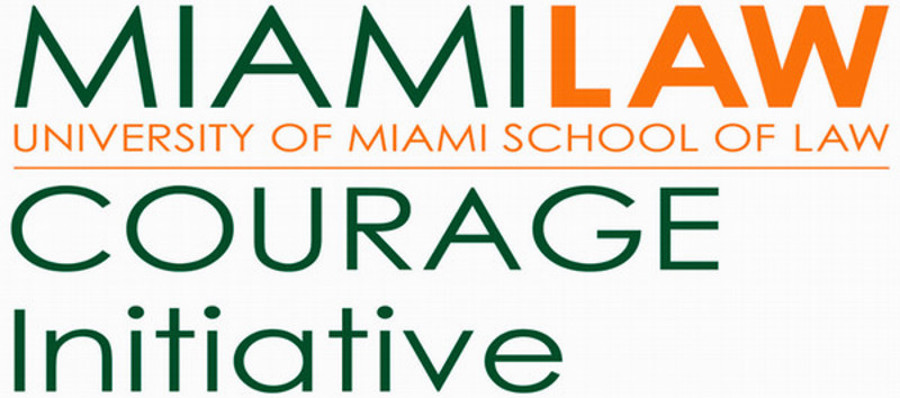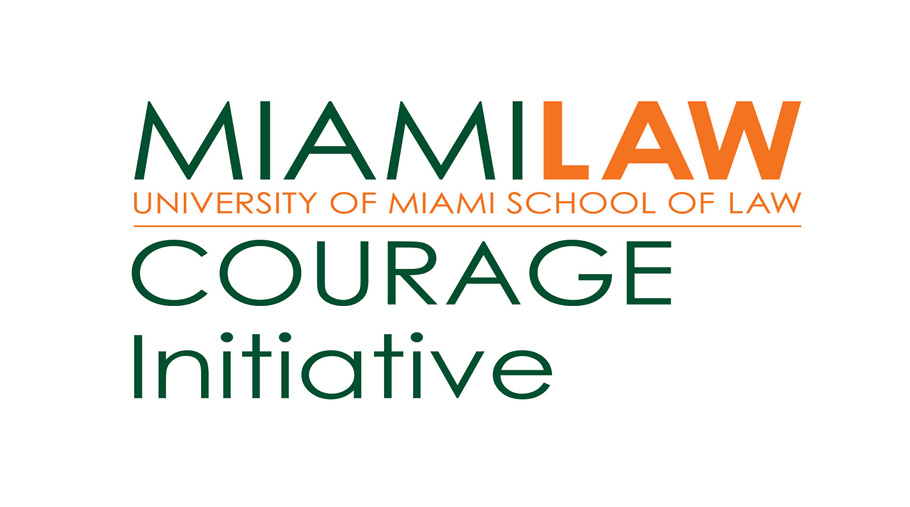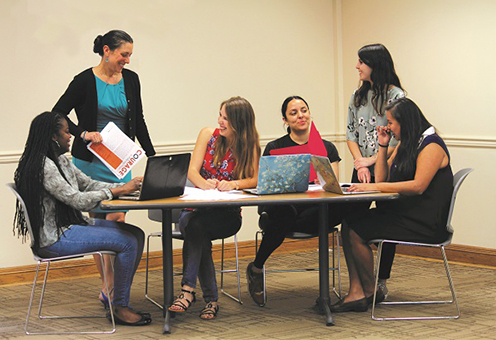Community Oriented and United Responses to Address Gender Violence and Equality
COURAGE scholars and researchers work with local and national leaders, community-based organizations, state actors, and others to improve governmental and community responses to domestic violence and sexual assault, and other forms of harm experienced by GBV survivors and their families. COURAGE projects have local, national, and international components, aiming to connect efforts to stop GBV with advocacy for racial and economic equity, immigrant justice, and LGBTQI rights.
Additionally, the Human Rights Clinic has supported the Lancet Commission on Gender-Based Violence and Maltreatment of Young People by developing an analysis of global and regional human rights standards on gender-based violence and maltreatment of young people, as well as a mapping of relevant human rights instruments.
In a report to the U.N. Permanent Forum on People of African Descent, the Clinic further prepared an assessment of responses to gender-based violence against Black residents of Miami-Dade County.
As detailed further below, the COURAGE in Policing Project has developed a human rights framework for improving law enforcement responses to gender-based violence, as well as a series of country case studies, focused on Canada, Brazil (in English and Portuguese), and the U.S., assessing good practices and challenges using this framework.
COURAGE involves the following sub-projects:
The COURAGE in Our County: Miami-Dade Safety Project
The COURAGE in Our County: Miami-Dade Safety Project is the latest initiative under the COURAGE umbrella, led by Professor Caroline Bettinger-López, Professor Donna Coker (Law), Associate Professor Dr. Kathryn Nowotny (Sociology), and Research Associate Dr. Rosario Concha.
Miami-Dade Safety is a social policy project designed to promote laws, policies, practices, and funding that enhance safety from GBV in Miami-Dade County (MDC). In line with the COURAGE Initiative, the Miami-Dade Safety Project addresses GBV from a socio-legal, human rights, public health, and economic justice perspective. It integrates these different frameworks to improve support and access to justice for survivors from marginalized communities. Rooted in community-engaged social research, Miami-Dade Safety focuses on strengthening prevention and local responses to GBV and facilitating survivors’ healing. The project uses a trauma-informed approach by acknowledging the impact of widespread trauma among GBV survivors throughout the life course. Miami-Dade Safety draws attention to the exacerbating effect of inadequate institutional responses and addresses the current crisis in services resulting from stringent immigration policies and funding cuts.
Aligned with the National Plan to End GBV, the Miami-Dade Safety Project highlights areas that require attention, including access to permanent and affordable housing, economic security and self-sufficiency, and labor protections. It incorporates insights from community partners to create a GBV safety agenda that reflects the social, economic, and cultural dynamics specific to MDC. Following the guidelines of The Department of Health and Human Services, this project aims to reduce re-traumatization by assessing institutional responses and enhancing trauma-informed protocols that take into account intersectional bias.
Research Methodology
The interdisciplinary research team actively engages with community organizations, social justice and policy reform groups, service providers, and local government agencies to collectively identify priorities and gaps in services and funding. The goal is to jointly elaborate actionable recommendations for MDC leadership and urge the county to implement a GBV safety agenda that aligns with the priorities of local communities.
The Miami-Dade Safety team uses a social policy research method known as listening sessions to gather the perspectives, experiences, needs, and priorities of our community partners. Our team conducts 12 sessions with community organizations, social justice and police reform groups, service providers, and government actors to understand their views on safety from GBV in MDC, addressing the desired changes in prevention, institutional responses, and support services of their clients or members.
The Miami-Dade Safety Project is supported by U-LINK: The University of Miami Laboratory for Integrative Knowledge.
COURAGE in Policing Project
The COURAGE in Policing Project works to enhance the law enforcement response to domestic violence and sexual assault, in partnership with community-based organizations, police departments, and national leaders.







